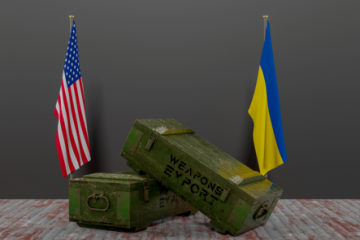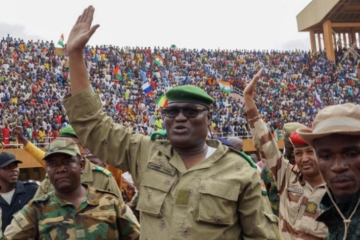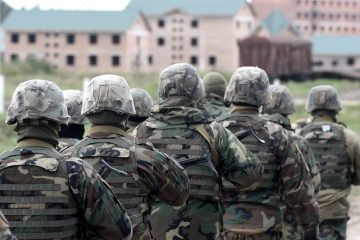
Why the West Should Tread Cautiously when Using Asset Freezes
The war in Ukraine has been raging for almost two years now. In the early days of Russia’s full-scale invasion, Western countries imposed sweeping sanctions on the Russian economy, a significant part of which was made up of asset freezes on some $300 billion in assets owned by the Russian Central Bank and Russian oligarchs. The war has devastated much of Ukraine’s eastern regions, infrastructure, and cities. The West has pledged to help rebuild Ukraine once the war is over, but such a task will cost billions, if not trillions, of dollars to accomplish. One solution advanced by Western lawmakers is to seize the assets that were frozen by sanctions and donate them to Ukraine to finance its reconstruction once …

The Need to Institutionalise US Support for Ukraine in the Face of Electoral Uncertainty
As storm clouds gather on the horizon, the future of US support for Ukraine remains uncertain. Despite overall high levels of support among the American public, questions over how much money to commit to Ukraine and the looming uncertainty of the next US election cast doubt on the extent to which the US–the largest overall aid donor to Ukraine–can continue to provide support. Growing concerns about accountability and transparency raise further doubts about continuing such substantial support, especially with no end to the conflict in sight. Ultimately, in order to maintain the current level of US support for Ukraine, aid flows need to become institutionalised and predictable. This would allow for more strategic long-term planning on behalf of the US …

Breaking the Domino Effect: How the West Should Respond to Niger’s Coup
On 26 July, Niger’s presidential guard launched a coup against President Mohamed Bazoum, announcing their seizure of power in a televised broadcast. As the dust of the coup begins to settle, Niger — and the international community — stand at a crossroads. The military junta’s success in maintaining power is far from guaranteed and has been widely condemned. Several states and supranational organisations, including the US, France, the EU, the Economic Community of West African States (ECOWAS), and the African Union (AU) have threatened the military junta with sanctions if it does not reinstate President Bazoum, and have even considered military intervention. However, the Sahel’s track record of successful coups suggests that Niger is likely to see further democratic backsliding, …

A New Battleground: Russia’s “Grey Zone” Warfare in the Sahel
As Russia’s invasion of Ukraine enters its second year, the Wagner Group has been expanding its Kremlin-backed footprint across the globe. In particular, the mercenary network has been deploying forces in Africa’s Sahel region, revealing how Moscow is strategically blurring the line between “anti-terror” operations, security-for-resources tradeoffs, and covert political influence. In recent months, U.S. officials have accused Wagner of exploiting resources in the Central African Republic (CAR), Mali, Sudan, and beyond in an effort to fund Putin’s “war machine” in Ukraine — a charge Moscow dismissed as “anti-Russian rage”. Beyond the Ukraine crisis, however, the group’s activities and atrocities are painting a dire picture of Russia’s long-term strategy to destabilise Western relationships and gain a foothold in the African …









